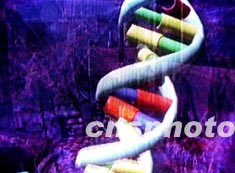

CAS Scientists, in cooperation with colleagues at the Institute of Microbiology and Epidemiology of the Academy of Military Medical Sciences, hav obtained draft genome sequences from four samples containing the SARS-associated coronavirus from SARS patients.
All four samples of the SARS-associated coronavirus were isolated from patients in Beijing and Guangdong Province where the first case of SARS was treated. Two of the isolates were from autopsies of the lung tissue of deceased patients, one from Beijing and the other from Guangdong. The third one was from a mixed autopsy sample of the liver and lymph nodes isolated from the same Beijing patient from whom the lung tissue was taken. The fourth sample was from nasal/throat swabs of several patients with SARS in Beijing.
The DNA sequences reverse-transcribed from the RNA virus isolated from the mainland Chinese samples were compared to genome sequences previously reported by Canadian and US scientists. A few nucleotide differences among individual genomes were detected as the virus is expected to mutate very fast and easily.
The SARS-associated coronavirus is believed to be a member of the Coronaviridae family. RNA viruses, such as the human immunodeficiency virus (HIV) and the Influenza (flu) virus, are known to change their genetic makeup readily in different tissues during their rapid propagation (genome replication and viron assembly) in living cells over a short period of time. For effective diagnosis and treatment of these viral infections, it is essential to study the mutation spectra of the virus. The detailed comparative analyses from different viral isolates both at the genome sequence and protein levels will be an important contribution to SARS research efforts currently underway in the international biomedical research community and help scientists worldwide to develop accurate diagnostic tests, effective disease treatments and vaccines to prevent further spread of the virus.
Scientists at the CAS Beijing Genomics Institute say that complete genome sequences will be updated and released to public databases as soon as they become available. Efforts to identify viral proteins with proteomic tools are underway, and findings are expected soon.

86-10-68597521 (day)
86-10-68597289 (night)

52 Sanlihe Rd., Xicheng District,
Beijing, China (100864)

